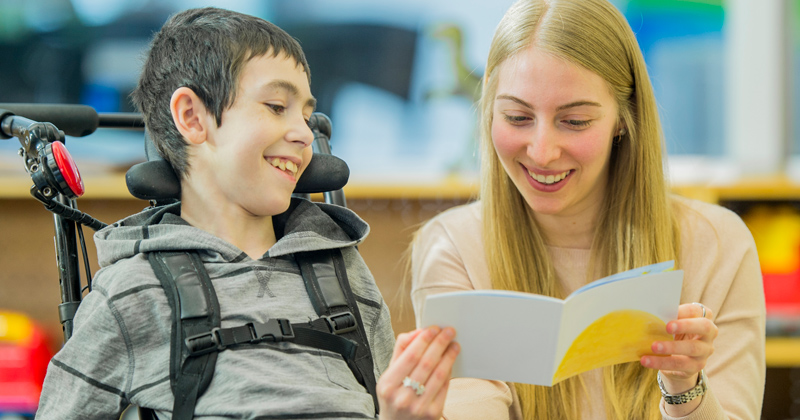Over the past 20 years, the term SEND has covered between 10 and 20 per cent of the school population. Currently, it’s around 12.6 per cent. But the reasons for these students’ needs are wide and varied.
Of course, there are commonalities between groups which allow for specialist teaching methodologies to be used. An obvious example would be the use of sign language and braille with those with significant hearing impairments and visual impairments respectively. But it’s much harder when it comes to students with severe learning disabilities (SLD) and those with profound and multiple learning disabilities (PMLD).
You might expect an academic like me to advise turning to research to find out about how those with SLD and PMLD learn. In reality though, there is remarkably little. This is due to a number of factors, including the small proportion of school children the terms apply to (less than 2 per cent combined), the limited availability of funding, and ethical and practical difficulties with conducting research with this population.
Even more unfortunately, the research that does exist is often badly used and/or abused. In a recently published paper, Peter Imray, Mike Sissons and I show that relevant educational research undertaken so far has a strong tendency towards three problems: conflating the need for common strategies to be universally used in teaching with the ‘need’ for a common curriculum; quoting research that applies to students with certain types of SEND as though it applies to all students with SEND; and assuming there is an homogeneity of learning disabilities among people with the same diagnostic label (e.g., Autism Spectrum Disorder, Down Syndrome).
Dyslexia has as much to do with SLD and PMLD as chalk to cheese
All of these issues come to the fore in the most recent iteration of England’s government policy on literacy in schools, namely The reading framework: Teaching the foundations of literacy, which claims to ‘concentrate on good practice for those with moderate to severe SEND and complex needs’. This is a very broad category, which includes all those with SLD and PMLD.
The document goes on to claim that “consensus is growing among academics and teachers that the best reading instruction for children with SEND is systematic synthetic phonics”.
To support their claim, the DfE name five pieces of research. Two relate to children with autism, and one to Down Syndrome (DS). None of these three mentions the level of learning disabilities or difficulties experienced by the children included in the studies, yet a significant percentage of people with autism have no learning difficulties at all, while the majority of those with DS have mild to moderate learning difficulties.
Another of the five research documents discusses dyslexia, which has as much to do with SLD and PMLD as chalk to cheese. The last claims that several children with SLD were included in its sample, but a closer look at the IQ measurements it provides shows that many of the participants had moderate rather than severe learning disabilities. Their results on the benefits of phonics-based programmes are therefore less applicable to students with SLD, and not at all to learners with PMLD.
The DfE paper makes the assumption that one educational strategy (in this case SSP) will work for all learners with SEND without considering that some, particularly those with SLD and PMLD, learn differently.
But some do, and because they learn differently we ought to be open to teaching them differently and teaching them different things. This is the case especially for students with SLD and PMLD, who are usually placed in special schools. However, with a shortage of places in these settings and an increasing demand on mainstream schools to accommodate students with a range of special educational needs, teaching staff from mainstream schools are also likely to be expected to play this role.
We really need to stop treating students with SEND as an homogenous group.
Lila Kossyvaki is co-editor of A Different View of Curriculum and Assessment: for those with profound, complex and severe learning disabilities, available soon from Routledge




Your thoughts